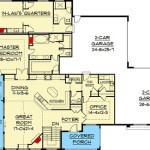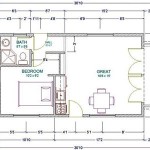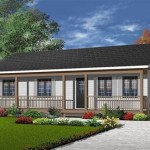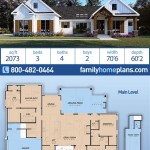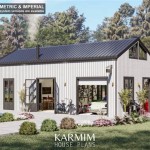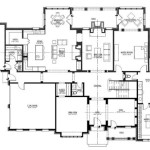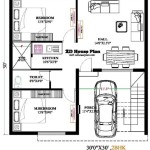Energy Efficient Home Design Plans
An energy efficient home is one that uses less energy to heat, cool, and power than a standard home. This can save you money on your utility bills and help reduce your carbon footprint. If you're thinking about building a new home, or renovating your existing home, consider incorporating some of these energy-efficient design features. ### Insulation Insulation is one of the most important factors in energy efficiency. It helps to keep your home warm in the winter and cool in the summer, by preventing heat from escaping or entering. The most common types of insulation are fiberglass, cellulose, and spray foam. ### Windows Windows are another important source of heat loss. When choosing windows for your home, look for ones with a high Energy Star rating. Energy Star windows are designed to be more energy efficient than standard windows, and they can help you save money on your energy bills. ### Doors Doors are also a source of heat loss, but to a lesser extent than windows. When choosing doors for your home, look for ones with a weatherstripping and a tight seal. Weatherstripping helps to prevent air from leaking in and out around the door, and a tight seal helps to keep heat from escaping. ### Heating and Cooling Systems The type of heating and cooling system you choose for your home can also have a big impact on your energy efficiency. If you're looking for an energy-efficient system, consider a heat pump or a geothermal heating and cooling system. Heat pumps are more efficient than traditional furnaces and air conditioners, and they can help you save money on your energy bills. Geothermal heating and cooling systems use the earth's natural heat to heat and cool your home, which can be very energy efficient. ### Appliances The appliances you choose for your home can also affect your energy efficiency. When choosing appliances, look for ones with a high Energy Star rating. Energy Star appliances are designed to be more energy efficient than standard appliances, and they can help you save money on your energy bills. ### Lighting Lighting is a major source of energy consumption in homes. To reduce your energy consumption, use energy-efficient light bulbs, such as LED or CFL bulbs. LED and CFL bulbs use less energy than traditional incandescent bulbs, and they last longer. ### Other Energy Efficient Features There are a number of other energy efficient features that you can incorporate into your home design, such as solar panels, wind turbines, and rainwater harvesting systems. These features can help you reduce your energy consumption and save money on your energy bills. ### Benefits of Energy Efficient Home Design There are many benefits to building an energy efficient home. Energy efficient homes can: * Save you money on your utility bills * Reduce your carbon footprint * Improve your indoor air quality * Make your home more comfortable * Increase the value of your home If you're thinking about building a new home, or renovating your existing home, consider incorporating some of these energy-efficient design features. Energy efficient homes are a smart investment that can save you money, reduce your environmental impact, and improve your quality of life.
Eco Design Energy Efficient Homes Greenmatch Co

Energy Efficient Home Design Plans Cad Pro

Sustainable Building In 2024 Energy Efficient Kit Homes

Cool Energy Efficient Concrete House Plans Houseplans Blog Com

Energy Efficient House Design

Net Zero Home Design Popular Plans Energy

Cool Energy Efficient Concrete House Plans Houseplans Blog Com

Energy Efficient House Plans Developed By The Architects

21 Green Homes Energy Efficient Home Designs Ideas House Plans Design

Dpe House Design Studio Energy Efficient S

